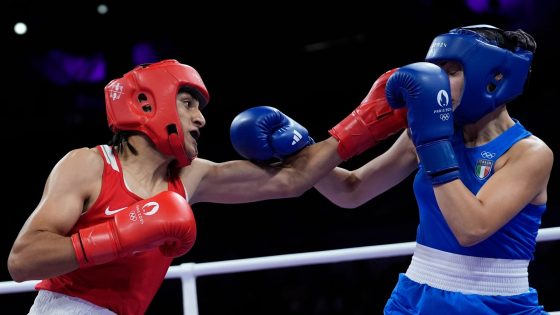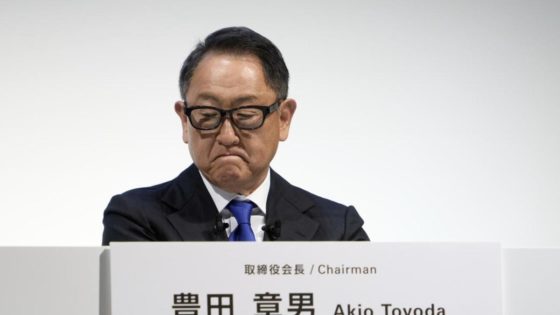Olympic chiefs should reintroduce gender testing for female athletes to protect them from injuries amid concerns about eligibility, a United Nations adviser told Sky News.
The intervention from Reem Alsalem, the UN’s special rapporteur on violence against women and girls, comes as the Paris Games is embroiled in a debate about dangers from testosterone advantage in women’s events.
Ms Alsalem has expressed concern that Italian boxer Angela Carini was exposed to violence based on her sex during a women’s bout against Imane Khelif, who it has been claimed failed a gender eligibility test.
Read more:
How gender row created one of most contentious Olympics contests ever
The issue is set to feature in a report now being prepared by Ms Alsalem to deliver to the UN General Assembly in October that will have a focus on violence faced by women in sport.
“It’s really important to make sure that the physical safety of any player is upheld,” Ms Alsalem said in an interview.
“We know that there are simple, efficient, dignified ways of testing sex… that are not invasive, that are cheap and that are reliable.
“So I think that will be one of the first things really to come back on is, why is that such a problem?
“If it can particularly resolve an issue and if it can allay fears, and concerns which are very valid.
“So that would be my question really to the IOC and… I have, in fact, discussed with the IOC in preparation for my report – the inclusivity and diversity guidelines.”
The International Olympic Committee introduced “certificates of femininity” at the 1968 Mexico Games. But those chromosome-based tests were deemed unscientific and unethical and dropped ahead of Sydney 2000.
And IOC spokesman Mark Adams cautioned this week: “To go back to the bad old days of ‘sex testing’ … would be a bad idea.”
That came after scrutiny over the participation of two fighters in the Paris women’s event – Algeria’s Khelif and Taiwan’s Lin Yu-ting.
They were reported by a scandal-hit boxing organisation to have failed gender eligibility tests that have never been specified – a process which has been questioned by the IOC.
Khelif quit her fight on Thursday after just 46 seconds after feeling overpowered by Khelif’s punches.
“I think yesterday was the manifestation of how disregard for certain important criteria can actually cause a lot more harm than good,” Ms Alsalem said.
“Women and girls in sports have been saying for decades that it is important to maintain… single-sex sport, particularly in elite sport.
“And, I think yesterday we saw this was not the case and that it created problems for safety, fairness, but also put the players in very difficult positions that neither of them controls and should have not been in.”
Read more:
Nicola Adams speaks on gender row
Carini wants to apologise to Khelif
The IOC has repeatedly said this week that if your passport says you are a woman you can compete in women’s sport.
While the IOC warns against “discriminating on the basis of gender identity or sex variation,” its guidelines do accept the “relevance of testosterone to athletic performance will vary from sport to sport.”
There is a need for the IOC to be clearer about biological sex and advantages of going through male puberty, Ms Alsalem said.
“I have been consulting with a wide range of stakeholders,” she added, “including women, including women and girl athletes – and this issue is important to them.
“This issue has come up. They would like me to address this issue… it’s a fundamental principle in sports to ensure fairness, to ensure safety.”
Source Agencies








